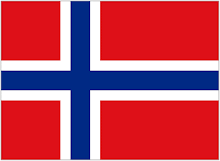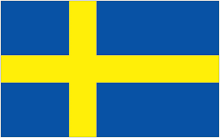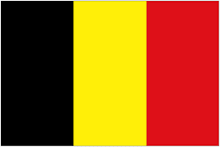Here is an overview of Henry's life which was published in The Daily Telegraph, including the war memories which still haunted him:
The BBC presents a short tribute to his life in pictures here.He was haunted by a nightmare memory of falling into a trench on the Western Front.
With a clear mind, even as he reached his 113th birthday, he could recall the death of Queen Victoria in 1901, the Wright brothers' first flight two years later and seeing WG Grace bat sometime between 1903 and 1906, though he could not remember how many runs Grace scored.
His experience of the trenches came was when he was looking for the remains of aircraft that had been shot down.
"We were moving forward at night," he would recall. "I was very apprehensive. It was dark. One of those nights you got where the night time seems to surround you. There were booby traps everywhere."
Suddenly his foothold gave way: "I fell into a shell hole. It was full of arms, legs, ears, dead rats – a lot of dead, rotten flesh. I was up to my armpits in water. I can't describe the smell flesh and mud mixed up together.
"I turned to my left, and that's what saved me. It got shallower to the left, and I was able to lift myself out of the water. I lay there in the dark, not daring to move, cold and with my uniform stinking. I was frightened. I was scared. I was so relieved when it finally got light and I could move."
Despite such a gruesome experience, Allingham counted himself fortunate: "I think I had an angel hanging over my shoulders. I still do, I hope."
Henry Allingham was born on June 6 1896 in Clapham, South London. His father died when he was 14 months old, and his mother and grandparents brought him up.
He attended the London County Council School in South Lambert Road, which he left to become a trainee surgical instrument-maker at St Bartholomew's Hospital. However, the work was uninteresting, and he soon moved to a coachbuilder specialising in car bodies for Foden and Scammel.
Allingham tried to enlist on August 3 1914. But when he turned up at the Royal Engineers' recruiting office in Piccadilly, desperate to be a dispatch rider, he found 200 other men in a queue in front of him. Even though he had his own Triumph motorbike, he was told there was no chance.
His mother's illness persuaded to him to stay at home for a few more months, but after she died, he saw a plane over Chingford, and thought: "That's for me".
Joining the Royal Naval Air Service, he was rated Mechanic First Class on September 21 1915, and sent to Sheerness to complete his training with 14 other recruits, who included two Australians, a New Zealander and an American.
Stationed for two years at Great Yarmouth, Allingham maintained seaplanes, but frequently cadged rides in aircraft, occasionally sitting in the navigator's seat on fights over the North Sea.
Later, at Bacton, Norfolk, he lit flares to make landing strips for night fighters which were hunting German airships. Among the pilots whom Allingham remembered with great affection were Lieutenant Egbert Cadbury, DSC, DFC, and his commanding officers
Lieutenant-Commander Wyndor de Courcy Ireland and Lieutenant-Commander Douglas "Snakey" Oliver.
He recalled watching Oliver win the DSO in June 1916 for his single-handed attack on German cruisers which were shelling Great Yarmouth; on another occasion, he helped Christopher Wood tie himself into a BE2c so that he could loop the first loop.
Allingham was disappointed when King George V, on a visit to the station, spoke to several sailors but never got to him in the line.
He undertook several patrols in seaplane tenders which each carried a Tabloid, a small aircraft Tommy Sopwith had designed to win the Schneider trophy race in 1914. In naval service, the Tabloid had a detachable rear fuselage which Allingham had to assemble before hoisting out the aircraft on a derrick for take-off.
On patrols Allingham preferred the paddle steamer Brocklesbury which had better accommodation than the trawlers, where the bunks were in the fish-hold. On May 31 1916, he was in the armed trawler Kingfisher, whose seaplane was shadowing the German High Seas Fleet.
His memories were of British Dreadnoughts steaming past with their huge bow-waves, followed by the whole fleet, line astern. The shells from the Germans came straight for the ship, but they bounced right over the top "like ducks-and-drakes."
Allingham was not aware that he had taken part in an epic sea battle until Kingfisher returned to Great Yarmouth, where he heard the vicar offer a prayer of thanks for the "great victory of Jutland".
In June 1917 he helped form 12 Naval Air Squadron, flying Sopwith Pups, Triplanes and Camels, and was sent to France as reinforcements for the Western Front. 12 NAS was a training squadron, based at Petit Synthe, which in November became involved in operations over Passchendaele, the third major offensive of Ypres. He remembered "dotting around places like Hellfire Corner, Plugstreet [Ploegstert] and Pop [Poperinghe] looking for the remains of aircraft that had been shot down."
It was on one of these visits to the trenches that he fell into a shell hole at night.
Transferring to the RAF when it was formed on April 1 1918, Allingham was demobilised in 1919, and then went to work for Ford until his retirement. During the Second World War, this was a reserved occupation.
He tried to forget his wartime memories, never going to reunions or joining old comrades' associations until 2003, when he was asked to lead the parade at the Remembrance Sunday ceremony at the Cenotaph.
As a concession to his age he was allowed to ride down Whitehall in an open-top 1911 Austin car at the head of the former servicemen and women who marched silently past the monument to the Glorious Dead. He was awarded the French Legion d'Honneur to add to his 1918 Victory and 1914-1918 campaign medals.
Wearing what had become his trademark crimson bow tie the following year, Allingham was applauded by the crowd as he insisted on standing to place a wreath, with only a little help from his escort.
He also crossed the Channel for the first time in 85 years to unveil a memorial to those who fell on the 90th anniversary of the war that was supposed to end all wars.
"I never went back," he said. "I wanted to forget it. I did forget. But, of course, there are some things you can never forget. The veterans' association asked me if I would go back. I didn't want to show any disrespect to my old pals. I had to go for them." He was presented with a gold medal and the freedom of St Omer.
Henry Allingham outlived his wife Dorothy, a nurse whom he met while he was in hospital with a cracked rib at Yarmmouth during the first war and their two daughters; his grandchildren tried to persuade him to move to United States, but he insisted on remaining in his flat overlooking the front at Eastbourne, saying "I love England".
He would attribute his longevity to "cigarettes, whisky and wild, wild women" then add that there had only been one woman for him – his beloved wife, who died in 1970.
Mr Allingham was much celebrated during his later years, and rightly so.
With his passing, however, we should not forget the sacrifices that people of his generation made for us and this country. When he was asked how he'd like to be remembered his reply was:
"I don't. I want to be forgotten. Remember the others."
What he meant was that we should remember all of those who never came back - those who couldn't dream of seeing their 21st birthdays, never mind reaching 100.
In that sentiment, he reveals just what was so humbling about him. He represents everything which was once great about this country.
Rest in peace, Henry.
.jpg)

















































































8 comments:
Henry and his mates fought for King and country, not for a multicultural mess. His photograph as a young man shows a serious, sober, honorable young Englishman, quite unlike so many of those in the streets of London today.
I heard a voice from heaven saying unto me, Write, From henceforth blessed are the dead who die in the Lord; even so saith the Spirit; for they rest from their labours.
May he rest in peace and may light eternal shine upon him.
So many people today have no memory of, no understanding of, and no respect for the innumerable sacrifices made by those who fought for our freedoms. If they did, they would not be so willing to let our liberties slip through their fingers.
"I don't. I want to be forgotten. Remember the others."
Yes indeed - not just the the ones who didnt come back from the carnage of WWI but also WWII. They gave all, that the politicos of this generation can hand it those who would undermine and destroy that legacy.
I've just finished listening to Joss Ackland reading "Fortress Malta" and I had the same thoughts. Those courageous, resilient people, the natives of Malta, the Brits who were stationed there, and the seamen who kept the island going, fought for something. Is this it - a "multicultural mess"?
When you look around and see the political class spouting off their pseudo-profundities as they do everything humanly possible to avoid tackling any problem whatsoever in an honest and straightforward manner, you can't help but notice that they're not fit to tie the laces of any of the pilots who were stationed in Malta during WWII.
And not one of those parasites who have recently been exposed by the Daily Telegraph for abusing their position in order to line their own pockets have it in them to even comprehend the calibre of man who sailed to Malta on Operation Pedestal, let alone emulate such behaviour.
When you go back and look at how people stood up for their countries during the World Wars, you start to realise just how deeply they have been betrayed by those who have held the reins of power since.
Nick
This book of an earlier great seige of Malta is a really interesting read.
The Great Seige - Ernle Bradford.
If this seige had been succesful, the Ottoman empire would have been able to mount an offensive against the soft underbelly of Europe. Islam could well have conquered Europe, thus preventing the birth of modern civilisation.
I've read it; I got a copy when I visited Malta last year. It's an excellent read. Another book which I can also recommend is "Empires of the Sea" by Roger Crowley. If you've already read Bradford's account of The Great Siege, then you'd probably enjoy that one too.
To have survived to the age that he did is testament to Henry's fortitude and moral courage. The substance of a man is tested by how he reacts to difficult times. It has been noted that Henry, and those like him, did pass their tests which sadly, goes mostly unnoticed today.
Not only did old warriors like Henry suffer the deprivations that physical stress engenders, they also bore witness to scenes of destruction and carnage so terrible, that it was forever implanted on their brains. Scenes so nightmarish that they were sentenced to be tormented by them every time they slept.
May God grant you peace Henry for all that you have suffered.
I had a look around and found a photo of me at the Siege Bell in Malta, I didn't have a digital copy so I just held it and took a snap with my mobile. Note the covers on the recliner as well!
Post a Comment